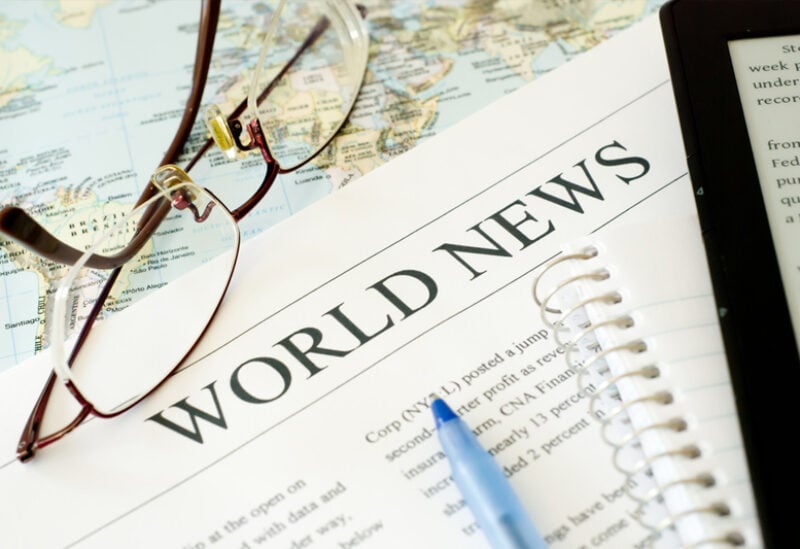
World News
Signing various political and military deals, Russia has recently set its sights on the African continent. Moscow’s renewed interest has been linked to the latest spate of coups as it seeks to gain a foothold.
In early January, hundreds of Russian military advisors were deployed to Mali. The contractors from the controversial Wagner Group were invited to “help Mali train its security forces,” according to the Malian army.
This raised a few eyebrows: The assignment was previously the job of the European Training Mission to Mali (EUTM). After Colonel Assimi Goita overthrew late President Ibrahim Boubacar Keita in the 2020 Malian coup — and was later sworn in as president following a second coup in May 2021 — he faced regional and international sanctions for extending a proposed timeline for presidential elections.
Sudan, Chad, Guinea Conakry and Guinea Bissau have also experienced coups in the past year. One thing they all have in common: Most of the soldiers behind the coups had received military training sponsored by Russia.
“The qualities that recommend them for foreign training are the same ones that make them effective coup leaders,” Judd Devermont, the director of the US-based think tank Africa Program for Center for Strategic and International Studies, told DW in late 2021.
The two Malians believed to be the chief architects behind the 2020 coup, Malick Diaw and Sadio Camara, each spent about a year at the Moscow Higher Military Command School. These same soldiers also took part in training missions organized by the US and the EU. Following the coup, Media Operations Branch Chief for AFRICOM, Kelly Cahalan, told DW: “The mutiny act in Mali is strongly condemned and inconsistent with US military training and education.”
Moscow reviving old Soviet ties
According to Irina Filatova from the Higher School of Economics in Moscow, Russia aims to gain a foothold on the continent as a security broker in order to “confront the collective West” and project the image of a “defender of Africa” — an objective which the West has seemingly failed to achieve.
It’s far from the first time Russia has dabbled in African affairs: In the 1950s, the Kremlin backed liberation movements across the continent. At the time, Russia’s main export was light-to-medium range arms and ammunition.
And Moscow’s influence was welcomed by many. “Without the firm stand of the Soviet Union during the Cold War and the heyday of the anti-colonial struggle, many of our countries would never have seen the light of independence,” Obadiah Mailafia, a former deputy governor of Nigeria’s central bank, told DW.
But this support waned following the dissolution of the Soviet Union in 1991. Over the past two decades, current President Vladimir Putin has tried to revive these independence-era connections and act as a foil of-sorts to the West’s neocolonial policies.
“Now that Russia is in a fairly strong position, Africa can benefit from mutually beneficial investments and trade cooperation,” said Mailafia.
Russia has officially remained silent on its policies for Africa. But, as Filatova sees it, Moscow is relying on private military companies like the Wagner Group to act as “door-openers.”
“Officially [the military groups] are not incorporated in the strategy at all, but what we see is that they always come first when there’s some instability and then they help secure those in power who have built relationships with Russia,” she told DW.
The junta regime responded by banning German military planes from Mali’s air space, expelling the ambassador of former colonial power France and calling for the immediate withdrawal of Danish forces.
Mali’s southern neighborBurkina Faso witnessed its own coup in January. Like their counterparts in Mali, the Burkinabe military have defied calls to hand over power to a civilian government. They, too, have oriented themselves toward Moscow.
Sudan, Chad, Guinea Conakry and Guinea Bissau have also experienced coups in the past year. One thing they all have in common: Most of the soldiers behind the coups had received military training sponsored by Russia.
“The qualities that recommend them for foreign training are the same ones that make them effective coup leaders,” Judd Devermont, the director of the US-based think tank Africa Program for Center for Strategic and International Studies, told DW in late 2021.
The two Malians believed to be the chief architects behind the 2020 coup, Malick Diaw and Sadio Camara, each spent about a year at the Moscow Higher Military Command School. These same soldiers also took part in training missions organized by the US and the EU. Following the coup, Media Operations Branch Chief for AFRICOM, Kelly Cahalan, told DW: “The mutiny act in Mali is strongly condemned and inconsistent with US military training and education.”
According to Irina Filatova from the Higher School of Economics in Moscow, Russia aims to gain a foothold on the continent as a security broker in order to “confront the collective West” and project the image of a “defender of Africa” — an objective which the West has seemingly failed to achieve.
It’s far from the first time Russia has dabbled in African affairs: In the 1950s, the Kremlin backed liberation movements across the continent. At the time, Russia’s main export was light-to-medium range arms and ammunition.